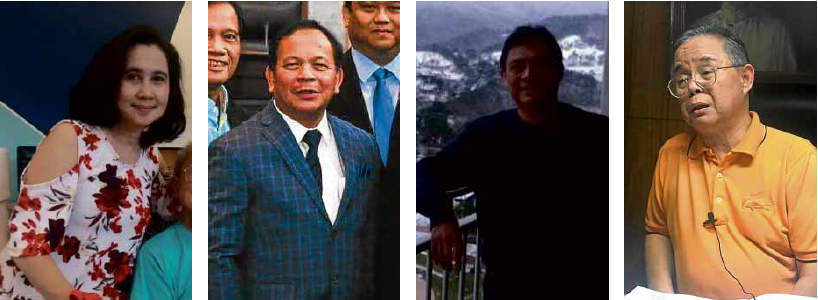How the Inquirer picked its Filipinos of the Year 2018
Thirty-eight editors and subeditors took part in the vote (with one abstention) for the Filipino(s) of the Year 2018 in a process that, unlike in other years, was hardly contentious.
The nominees are all remarkable men and women, and no arguments were raised on the reasons for their being named: “courageous judges” (Rodolfo Azucena Jr., Arlene Lirag Palabrica, Andres Soriano and Alexander Tamayo); “brave bishops” (Pablo Virgilio David, Broderick Pabillo and Socrates Villegas); Supreme Court Senior Associate Justice Antonio Carpio; UP Fighting Maroons; and Rappler CEO Maria Ressa.
The judges — nominated for “rendering judgments that satisfy the people’s clamor for justice, at a time when key institutions or their stewards seem to be under political pressure or payroll” — received 16 votes.
“Our country needs this kind of bravery” was one voter’s reason for his/her choice; another reason cited was “for the show of judicial independence by lower courts as an antidote/corrective to the craven Supreme Court.”
Good shepherds
Article continues after this advertisementThe bishops, with nine votes, were cited as “good shepherds to their flock” who “speak out against the culture of impunity, violence and fear that Filipinos, regardless of religion, are encountering in this time of ‘tokhang.’”
Article continues after this advertisementThey “speak for their slaughtered sheep” and “give voice to voiceless victims of extrajudicial killings and violence,” the voters said.
Carpio, with eight votes, was commended for his “courage and conviction in upholding the Philippines’ sovereignty and jurisdiction over the West Philippine Sea,” for “standing firmly behind the rule of law, demanding that authorities strictly adhere to legal procedures in arresting, detaining and prosecuting criminal suspects,” and for his “sense of ‘delicadeza’” in the nominations for Chief Justice in the post-Sereno Supreme Court.
Apolitical choice
The UP men’s basketball team (3 votes) that for the first time in decades made it to the UAAP finals was the “lone apolitical choice that inspired a community to come together even as the odds were against [it].”
It was described as an “inspiration” and “a welcome breather from strength- and hope-sapping political, economic and social problems.”
The journalist Ressa (1 vote) was cited for “fighting efforts to curtail press freedom in the country.”
The Inquirer’s choices for its Filipino(s) of the Year are women and men who make the most impact on Philippine society or the most positive difference in the life of the nation. The yearly selection started in 1991.
